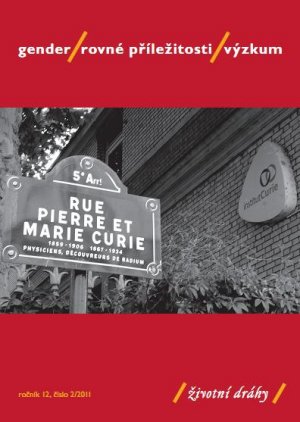Hašková, Hana. 2011. „Proměny časování a způsobu návratu matek do zaměstnání“. Gender, rovné příležitosti, výzkum. 12 (2): 40-52. ISSN 1213-0028.
In a European comparison, the Czech Republic is one of the countries where motherhood has the biggest negative impact on women’s employment participation. Some researchers explain this situation as resulting from Czech mothers’ preferences for a long‑term interruption to their labour market participation. Others stress that preferences are structurally and culturally embedded and identify barriers to the return of Czech mothers to the labour market. In this article, the author first introduces a critique of the theories that focus on preferences in work‑life balance studies. Second, inspired by the critique and based on a representative survey of the Czech adult population from 2010 focused on life course histories, the author analyses changes in the length of women’s employment interruptions caused by motherhood since the 1950s and describes the current refamilization model applied in Czech society. Subsequent analysis of biographical interviews with mothers of small children provides an insight into their decision‑making about returning to the labour market, and the analysis also shows that statistical evidence of the increase in the economic inactivity of Czech mothers often relates to their involvement in unpaid or unofficially paid economic activities. These strategies are the result of their structurally and culturally constrained decision‑making and limited opportunities to achieve work‑life balance. At the end of the day, these factors strengthen long‑term gender inequalities in the society.
keywords: capabilities for work‑life balance, refamilization, post‑socialist context
Authors
Department
Topics
Gender
